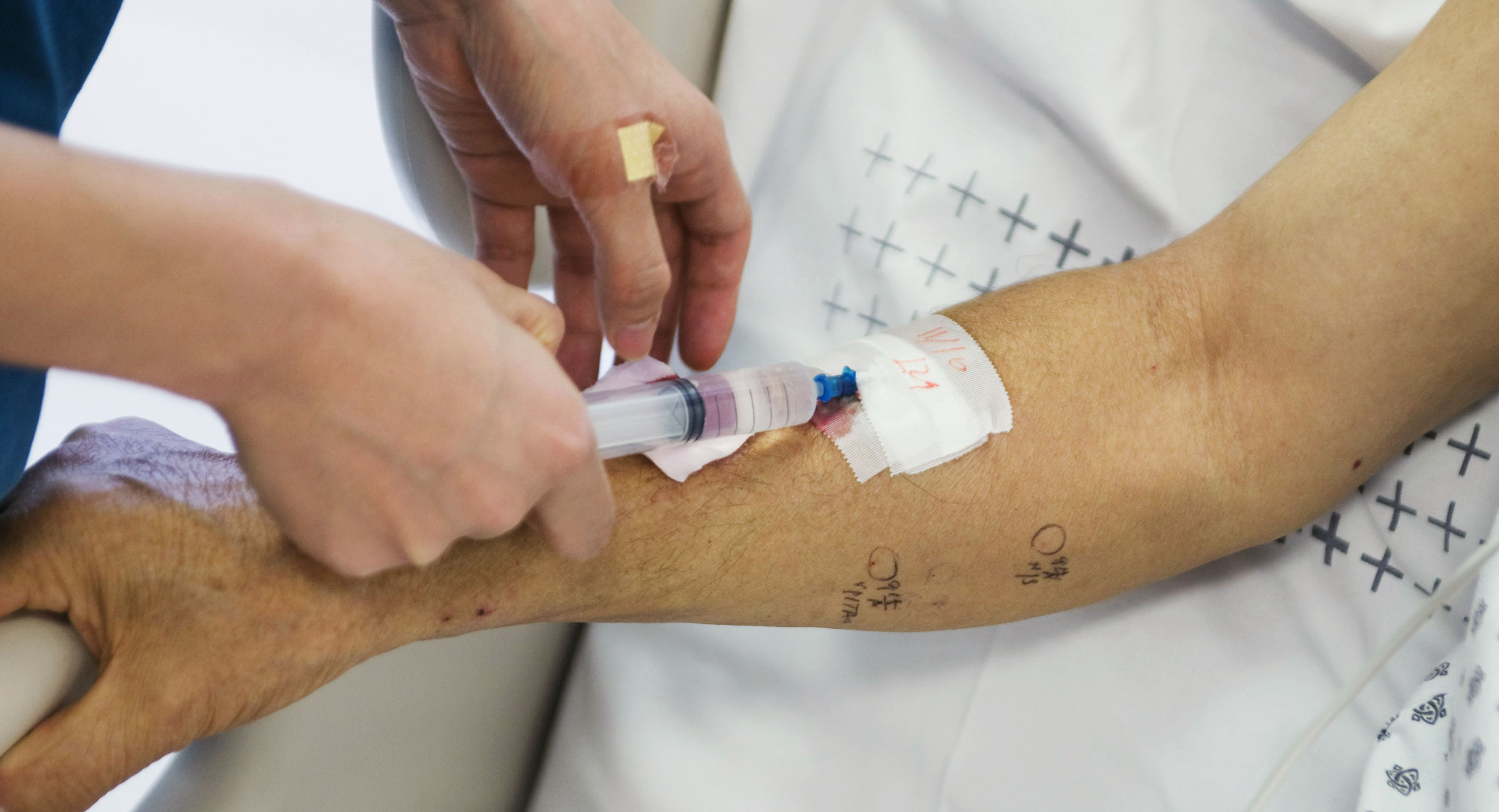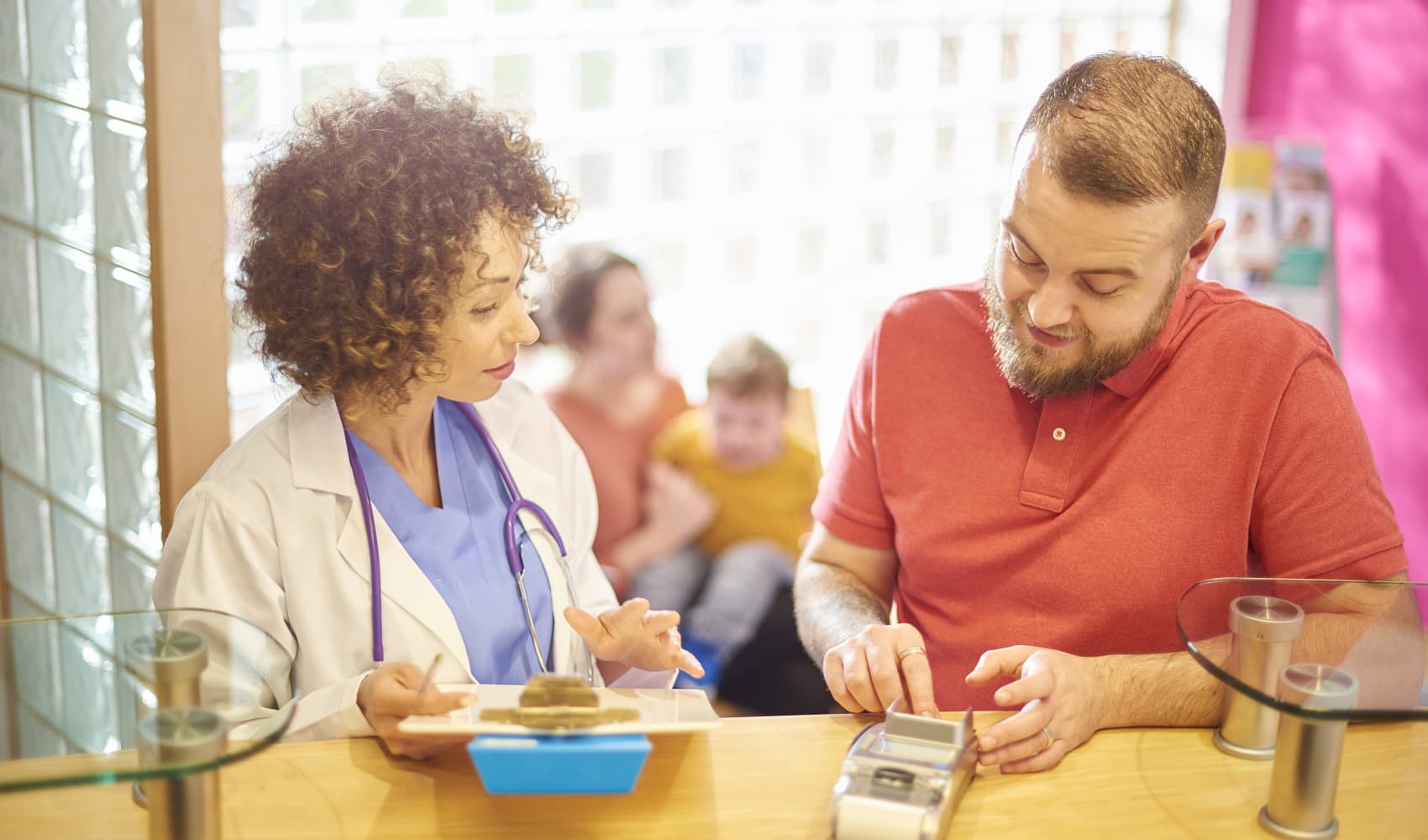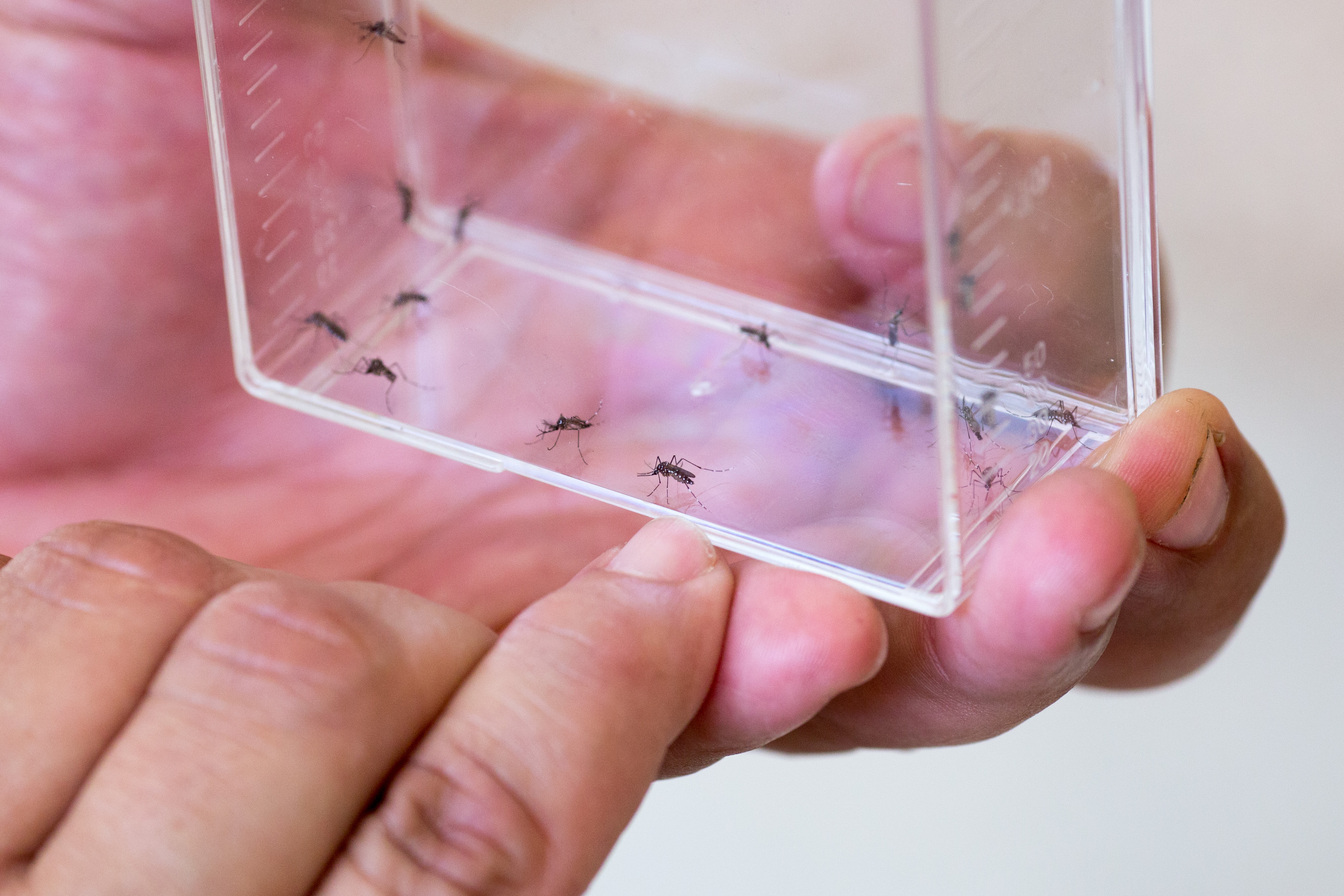
On a recent morning in an Afro-Caribbean community in northeast Puerto Rico, Dr. Pedro Juan Vázquez went door-to-door as part of his medical rounds. He greeted the elderly residents the town with a cheerful “Good afternoon!” and a smile and casually asked if they’d like their vitals taken.
Many were surprised at being approached with an offer of medical care. A man in a gray tank top opened his screen door and said, “Of course,” and took a seat on his porch to be checked out.
Watch NBC6 free wherever you are
>Though a physician, Vázquez is better known in Puerto Rico as a rapper who uses the stage name PJ Sin Suela.
The 34-year-old is trying to fulfill his passion for music while helping those in need — and raise awareness about a health crisis on the island of 3.2 million residents. The U.S. territory is facing power outages as well as a shortage of medical professionals, with many having fled to the U.S. mainland for better wages.
Get local news you need to know to start your day with NBC 6's News Headlines newsletter.
>Puerto Rico lost over 8,600 doctors out of nearly 18,800 in just over a decade, according to a 2023 report by the think tank The Center for a New Economy. The problem is expected to grow more dire in coming years.
“We have a huge exodus of young people,” Vázquez told The Associated Press. “In Puerto Rico, we have a crisis much bigger than people think.”
He travels from San Juan, the capital, to the island’s remote areas at least once a week to treat underserved communities struggling in the aftermath of hurricanes, earthquakes and a frail economy.
After hanging up his doctor’s scrubs, Vázquez spends his time producing and performing music that grapples with issues like social inequality, poverty and gun violence, with many deaths in Puerto Rico caused by domestic violence and stray bullets hitting innocent victims.
“A bullet is flying, lost like a child ... the wind caresses it, seeks to make news, falling into a skull, without any kind of justice,” he raps in “Las Balas Lloran” (“Bullets Cry”).
In “Somos Más” ("We are More") he taps into the distressing economic conditions on the island, singing: “The debt has been placed before the worker, the one who goes outside under the rain and the sun, public servers, teachers and nurses."
His focus on social inequality resonates at home and with homesick Puerto Ricans abroad.
US & World
Vázquez comes from a background of leaving and returning to the island, a back-and-forth familiar to many Puerto Ricans since they hold U.S. passports. He doesn't criticize those who have left Puerto Rico for the U.S. mainland, though he has done the reverse.
“You can’t judge anybody, everybody has their story,” he said. “I’m blessed to have two careers that I can do and live off of.”
He was born in the Bronx in New York City, but moved with his family to the southern town of Ponce, Puerto Rico. He later went to Pennsylvania, then returned to Bayamón, Puerto Rico, to study medicine, becoming a doctor in 2015.
Vázquez became a household name for a younger generation in Latin America in 2018 with the single “Cuál Es Tu Plan?” The song was a collaboration with Puerto Rican icon Bad Bunny and reggaeton singer Ñejo. The recognition he gained led to collaborations with Broadway star Lin-Manuel Miranda and René Pérez, known by the stage name Residente, the frontman of the former reggaetón duo Calle 13.
When the COVID-19 pandemic hit in 2020, he switched from holding a microphone to a stethoscope, working full-time at a hospital in Ponce for a year. As a general practitioner, he treated patients of all ages excited to be cared for by the popular rapper.
Vázquez said some doctors at first doubted his qualifications after years of touring and rapping, despite him keeping up his medical qualifications.
“After a month, everybody knew that this wasn’t a joke for me, and that I’m really good at what I do,” he said. “I shut up whoever doubted me.”
Dr. Carlos Díaz Vélez, president of Puerto Rico’s Association of Surgical Doctors, said Vázquez has helped put a spotlight on Puerto Rico’s health crisis.
“He’s expressed his criticism about what’s happening here because he himself knows what the problems are within the health system,” Díaz said.
In 2023, Vázquez’s work earned him a humanitarian award in the Premios Tu Música Urbano, an awards ceremony that recognizes urban music artists.
Milagros Martínez, a community leader in the western town of Hormigueros, recalls when Vázquez arrived in September 2022 after Hurricane Fiona to provide medical check-ups to families without power or water.
“The younger people recognized him,” Martínez said. “But he knew how to separate his medical role from his role as an artist.”
Since then Vázquez has been working on an album he hopes to release soon, reducing his shifts as a doctor from full time to once or twice a week in a mobile clinic with a nonprofit called Direct Relief.
In the News
Meanwhile, Vázquez faces a problem that plagues both his clinic and his recording studio: frequent power outages.
He’s had to leave his studio several times because it has no generator, but what troubles him most are the outages that affect his patients.
In June, towns in central and southern parts of the island faced a prolonged power outage during extreme heat.
“You’ll go and see people don’t have power for two days, going through the heat we have, and we have a huge transportation problem that people don’t talk about, where a lot of people can’t reach hospitals,” Vázquez said.
Now more than ever, he feels the need to juggle his passion to sing and care for others, something that’s come easier with time.
When he needs an extra set of hands, he calls for volunteers to assist with mobile clinics in Puerto Rico, and his fans step up.
“They sign up to treat patients for free all day with me,” he said. “I come out of (the clinic) crying sometimes."
___
Associated Press videographer Alejandro Granadillo contributed to this report.







